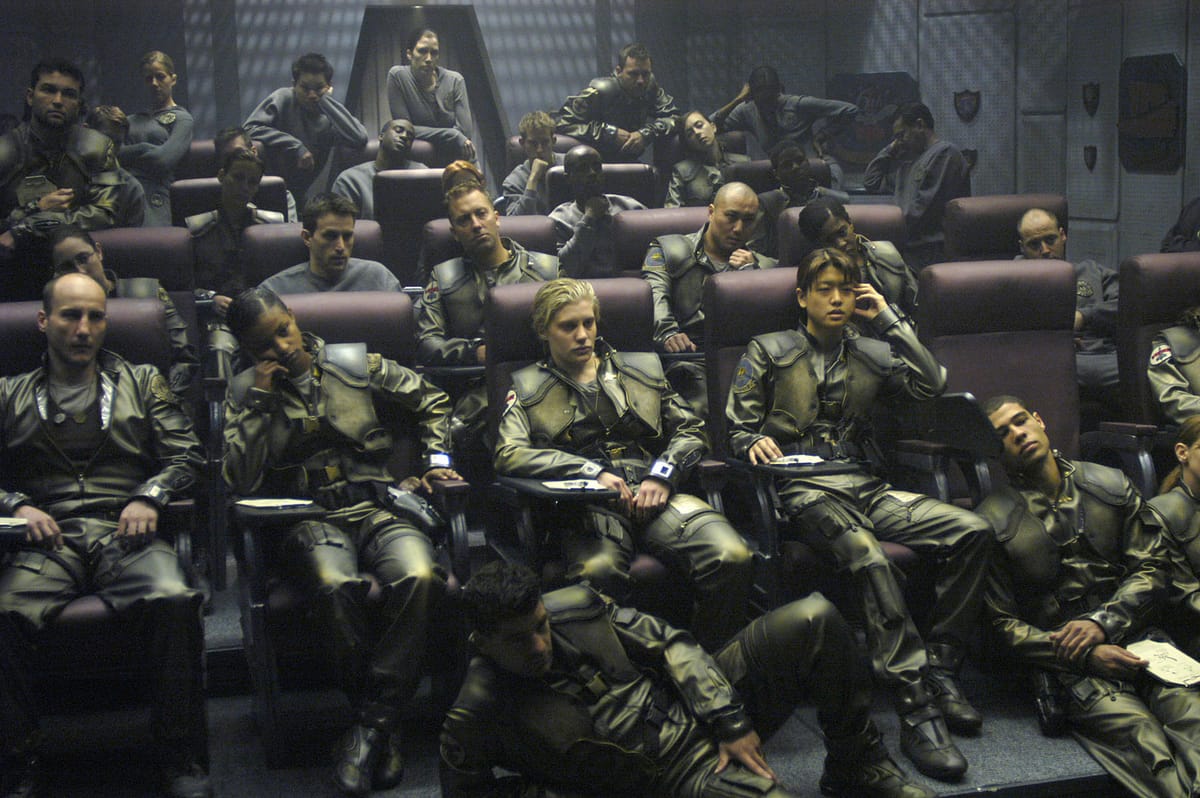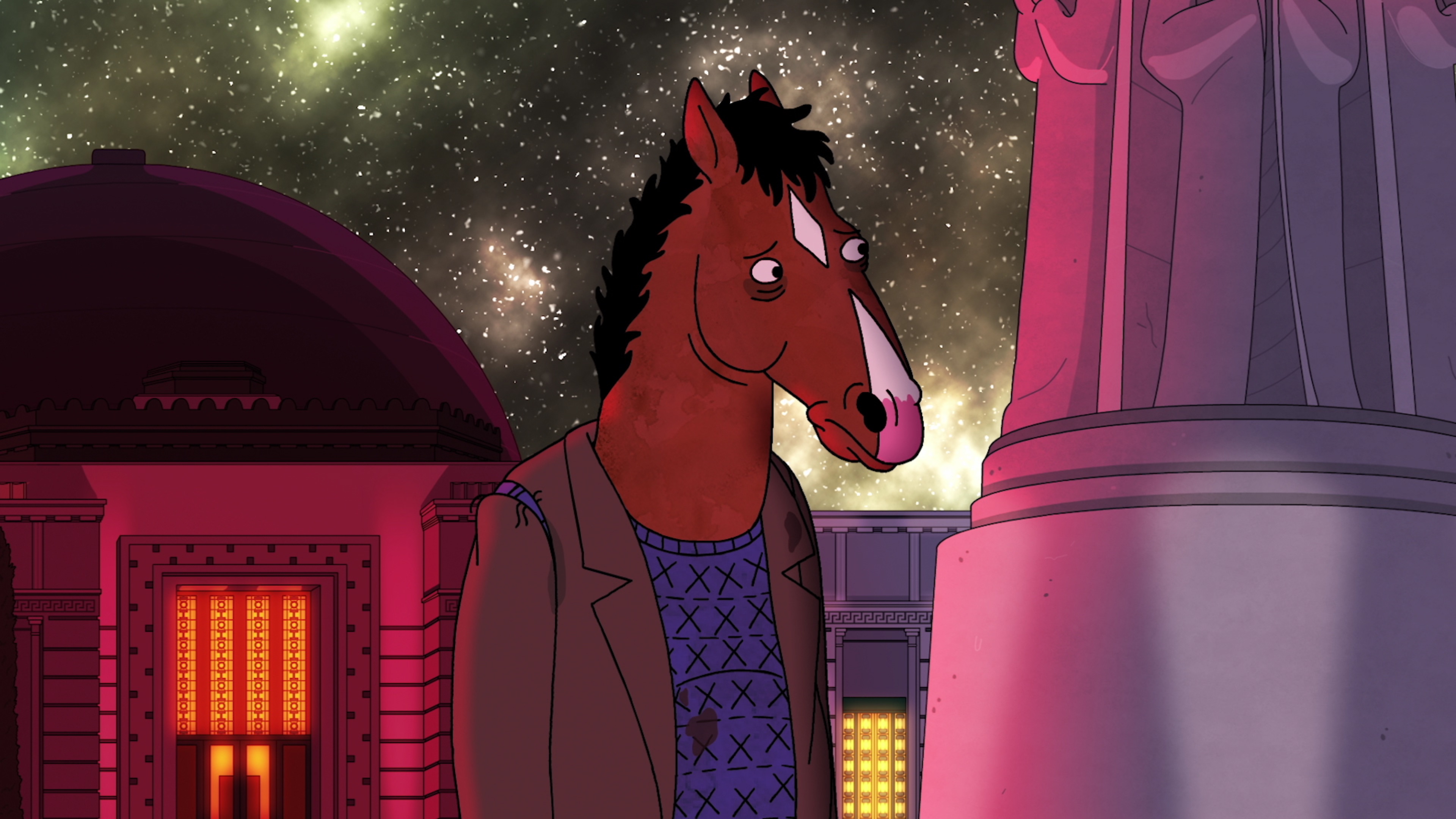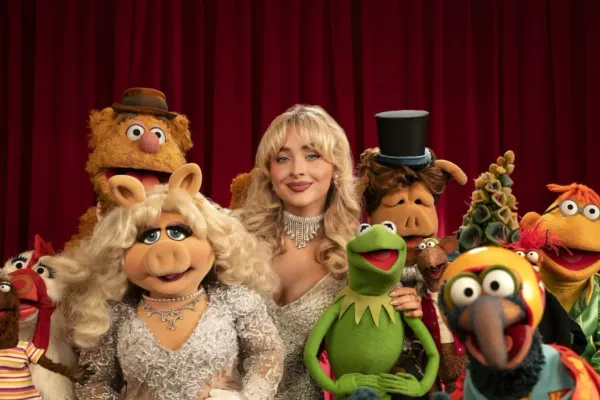I'm out
I loved TV criticism until I didn't

Something has been nagging at me for the past few years when it comes to my career and livelihood: I’m doing it wrong.
But it’s only been this year, in which I radically revamped my professional and personal identities, in which I started to put a finger on what both “it” and “doing it wrong” might mean. The deeper we get into the era of Peak TV — when there are so many programs that no one critic can possibly hope to watch all of them — the more it seems to me like the relationship of critic to reader has shifted even further from where it started out. I see my career, now, in terms of three distinct eras of TV criticism, and now that I’m in this third era, I kind of want to jump off the merry-go-round.

I started writing TV criticism professionally in 2006, when Matt Zoller Seitz paid me a few bucks per recap to cover Battlestar Galactica at The House Next Door. From there, I started writing some TV reviews at the newspaper I worked for at the time (The Press-Enterprise of Riverside, California, and good luck finding those reviews), before upper management asked me kindly to stop by moving me off the TV beat entirely. I quit and then fell into a series of recapping gigs at websites like the House, Hitfix, and (of course) The A.V. Club.
This was the era when TV criticism flourished hand in hand with the internet, and when readers’ primary request of critics was as follows: “Let’s talk about what I just watched, then point me to the next thing.” The universe of TV felt broader than it ever had before but still manageable, and if we had the faults of certain biases toward particular sorts of stories (white male antiheroes; single camera comedies), we at least started to figure out how to interrogate those biases.
The second era coincided roughly with when I went to Vox. Netflix, Amazon, and Hulu had entered the game, and John Landgraf coined the term “Peak TV.” In this era, there was too much stuff, but a fairly dedicated staff could keep up with most notable programs. The role of the critic, then, shifted from a docent — able to tell viewers in depth about a particular piece in the museum — to a guide. We weren’t there any longer to discuss but to highlight. These are the pieces you want to see before you leave. If I were to boil this down to a reader request, it would be: “Just tell me what to watch.”
The third era is one where nobody can possibly hope to keep up with the sheer deluge, where new streaming services enter the game every week and where Netflix launches endless gobs of new programming. The trades — the trades! — have stopped reviewing all new releases, and heaven forbid if you are the only TV critic at your publication. Readers no longer think of what I do strictly in the sense of highlighting programming of note. They increasingly want me to help them make consumer choices, something I feel particularly ill-equipped to do. I can’t possibly tell you if you should subscribe to AppleTV+ based on how I feel about the service’s new shows. It feels like making a leap from “I thought this was good” to “I’m going to tell you how to spend your money” that I don’t feel qualified to make.
Perversely, however, the deeper I get into this particular era, the more it’s starting to resemble the recap era in terms of the kinds of content readers want to read. People want to hear about what they’re already watching, not what they could be watching, because people feel overwhelmed at the sheer number of choices. Increasingly, the pieces I write that get the most traction are simply pieces that say, “This show that everybody is talking about is resonating for this reason.” It seems more and more to me like the chief request readers have of me now is: “Please, Emily, help me make sense of this.” And for as much as I feel like I can tell you why I think Succession has resonated with so many people, or why I feel like Watchmen is a must-see, I ultimately can’t make sense of the fire hose pointed right at all of our faces. And that’s before you get to platforms like YouTube, which are nominally on my beat but also sort of not.
(Sidebar: You’ll note that both of the shows I listed above are HBO shows, and it remains remarkable to me how much the TV criticism universe still rotates around the same handful of networks that it always has. A very specific show can muscle in to the conversation, but by and large, our readers are still most interested in programming on HBO, Netflix, and FX, roughly in that order.)
That’s why I think in 2020, I’m going to stop thinking of myself primarily as “a TV critic.” I don’t really think my job any more is “reviewing TV.” I think my job is “avoiding being crushed by the boulder that is TV.” I’ve written the fewest straight reviews this year that I have since the mid-2000s, but readers haven’t really noticed. Where last year, I might have gotten requests to check in on this show or that one, this year, I increasingly only hear from readers on what I’ve already written about. They all feel as overwhelmed as I do.
Instead, I want to be somebody who covers TV critically. Functionally, this will probably be no different for readers in most circumstances (unless you really, really care about a show’s Metacritic score), but when I look at the pieces I’ve been proudest of this year, they’re not the ones that aim to stay ahead of the boulder; they’re the ones that let the boulder pass by and then examine something it left in its wake, pieces like this one and this one and this one. This is me waving the white flag and saying that I would much rather write about what’s interesting to me than try to write about everything. And what’s interesting to me increasingly isn’t straight-up reviews. It’s much more common for me to be taken with the idea of writing a reported feature, or a critical essay, or something like that. I now prefer to take the long view, and taking a look at my traffic stats, my readers prefer that too.

But these are not the only reasons I’m increasingly trying to think of myself less as a TV critic and more as a journalist or essayist whose beat is television. For one thing, the closer I get to actually finding a job writing in television (whether on my show or on someone else’s), the more I worry about my own motivations in the reviews I choose to write and how I choose to write them. To be clear: I don’t think I’ve stepped over any ethical lines or made any judgment calls that reflect poorly on my objectivity. I have always shared my true opinion, sometimes in ways that have halted whatever career progress I’ve made. But I also don’t want to get to a place where I get a job someday and have it seem as though it was part of a quid pro quo — a good review for a future job. I’ve known too many people who did vaguely shady things to break in to the industry, and I don’t want to be part of that whole scene.
Plus, since I began my gender transition, I’ve also become much less interested in the idea that my opinions are any more interesting or valid than somebody else’s. I think this is a function of a pretty classic trans narrative among those of us who transition as adults — if I was wrong about my gender, what else was I wrong about? — but I also feel secure in my opinions now in a way I just didn’t before. I constructed a lot of my old persona around always winning the argument, and now, I’m more comfortable with the idea that the argument doesn’t have to be won. I can like a thing, and you don’t have to. It’s fine. Really! And while that can make for a great critical essay, I’m not sure it’s a voice that makes for the best reviews.
But the real issue is and always has been the sheer glut of programming to wade through. I’m excited to no longer feel like I have to stay on top of Screener Mountain, and I really can’t wait to dive in to things I would have relished even last year and just didn’t have time for this year. (I still haven’t seen the new BoJack episodes!) I sometimes worry that the various streaming networks genuinely believe that critics are incidental to their overall mission, and as a longtime defender of criticism as an artform, I want them to be proved wrong again and again. It’s the only thing that makes me second guess this ongoing career shift.
But then I look at the nearly 500 different episodes of television I have in various screener accounts here and there, and I think, nah. If they want me to cry uncle, fine. It won’t make their shows any better or my opinions any less valid.
Read me: Speaking of shows I’ve fallen behind on, I’ve largely bailed on the final season of The Good Place, which has felt a bit like it’s treading water in the first few episodes of season four. This is a common enough problem in the early going of a final season — except I felt that way about a lot of season three, too. But this piece at Autostraddle by A.E. Osworth about Janet’s non-binary identity has convinced me that, yes, I do need to catch up at some point.
Janet is also continuously and profoundly misunderstood. She’s called a “front desk lady,” a “magical slave robot.” And she is often called a girl. Calmly and with a smile, Janet often corrects those around her. “Not a girl,” “not a robot,” “not a person.” In season two, episode ten, she does offer two thumbs up and the phrase “I’m luggage!” to explain that she counts as a carry-on when it comes to traveling through a portal to the neutral zone. Thus the character of Janet lent me a minuscule-but-fun way to defuse, respond, chuckle my way through a constant annoyance. If The Good Place had given me only this, it would still have given me more relating to my gender than most other television shows.
Watch me: I absolutely love the YouTube channel Be Kind Rewind, where a woman named Isabel dissects film history by dissecting each and every Best Actress Oscar race, taking time to unpack issues of racism and sexism in Hollywood, as well as a culture that created monsters like Harvey Weinstein. This is one of my favorite channels, and it’s seriously under the radar. If you want just one video to start with, consider this one about Halle Berry’s win for Monster’s Ball.
And another thing…: It’s almost Halloween, which can mean only one thing in the VanDerWerff household — that’s right, planning the perfect Thanksgiving menu! If you want to know the one dish I haul out every single year to great aplomb, it’s this cranberry-pepper jelly that is sweet and spicy and perfect on toast. Make it this year. You’ll thank me.
Episodes is published once per week and is about whatever I feel like that particular week. Suggest topics for future installments via email or on Twitter. Read more of my work at Vox




